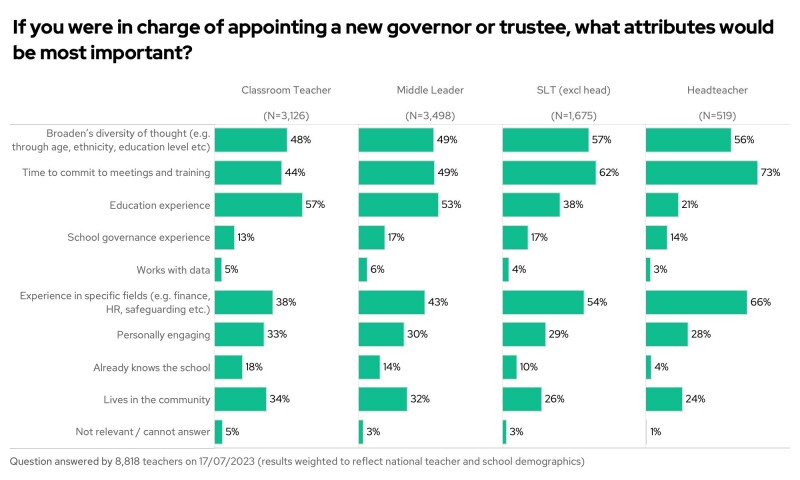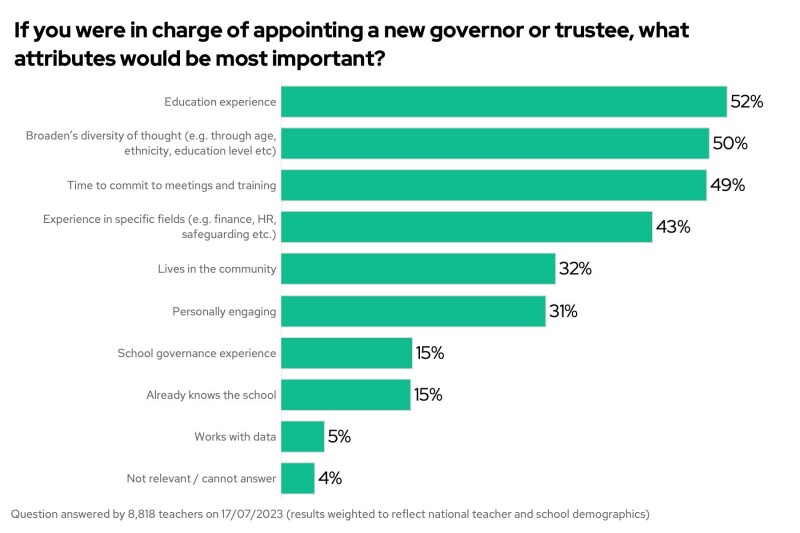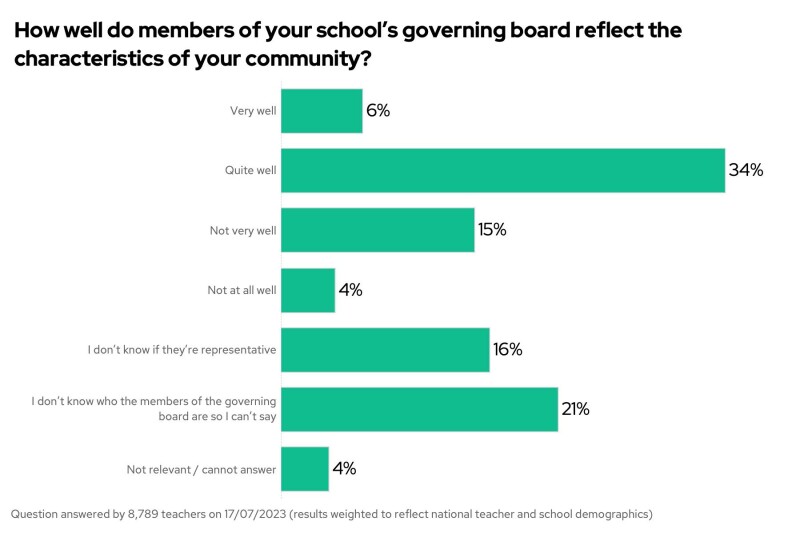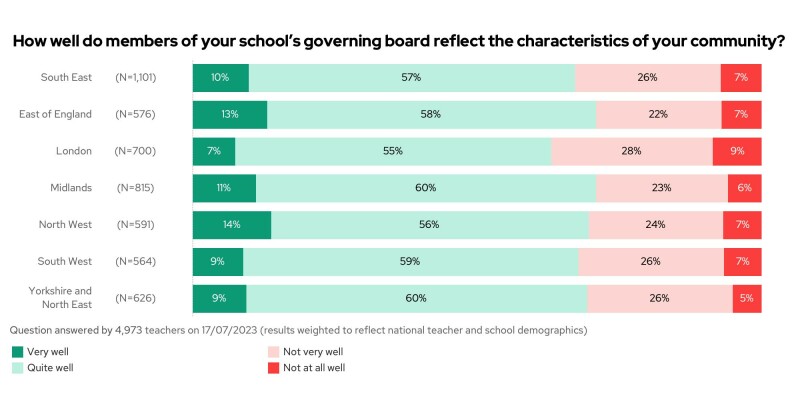What attributes do our school leaders value the most in new volunteers?

In April, the Department for Education (DfE) issued new guidance encouraging schools and trusts to collect and publish board diversity data.
As schools and trusts begin to track this information about their boards and share it with their communities, new data captured by Teacher Tapp for GovernorHub reveals what attributes school leaders value the most in new governance volunteers.
School leaders in England say 'time to commit to meetings and training', 'experience in specific fields' (e.g. finance, HR, safeguarding) and the potential to 'broaden the diversity of thought' on the board (for example, through age, ethnicity, education level or other characteristics) are the most important attributes for new volunteers.
Classroom teachers, who are less likely to sit on governing boards, also rate a new volunteer's potential to bring diversity of thought to the board. But they are far more likely than headteachers or senior leaders to value education experience among the most important attributes to look for if they were appointing. In fact, education experience came out top in the list of most important attributes they would look for, followed by the potential to broaden diversity of thought and time to commit to meetings and training.
Experience of working with data, prior knowledge of the school and experience of school governance were the attributes least likely to be considered most important across senior leaders, headteachers and classroom teachers.
Teachers and school leaders were also asked how well members of their school governing board reflect the characteristics of their community. While 40% were able to say their board reflects the characteristics of their community “very well” or “quite well”, 37% either didn’t know whether or not the board was representative or didn’t know who the members of the board are.
Teachers and school leaders in London were the least likely to say their school’s governing board is representative, with 37% saying it reflects the characteristics of their community “not very well” or “not at all well”. In the other regions, this ranged between 29% and 33%.
Diversity on a board brings a range of perspectives for robust decision making, helping to make sure that decisions taken are in the interests of all pupils. However, school governance is notoriously lacking in diversity. Despite many initiatives dedicated to encouraging better representation on boards over several years, too many boards still struggle to reflect the true diversity in their communities or the wider population.
Research carried out by GovernorHub and Ipsos with more than 4,000 governance volunteers in 2022 found governors to be typically older (35+), white and more educated. Governors themselves also reported that while their boards were diverse in terms of gender, they were much less so for age, ethnicity, social class and disability.
This September, GovernorHub launches a new feature which will allow schools and multi-academy trusts to collect and track anonymous data on the demographic make-up of their boards, including information on: age, disability, ethnicity, religion, sex and gender identity, sexual orientation, and education level. In the longer term, GovernorHub will make this data easy to compare to local census data, to help boards assess how reflective of their communities they are.
GovernorHub managing director Neil Collins says: “It’s really important that schools stay rooted in their communities and governing boards in both the maintained and academy sector are one of the bridges between schools and their communities. Often, boards are something of an echo chamber, being mostly white, middle class and highly educated. In fact, when it comes to many issues, including school uniforms, school trips and much else, schools need to hear from the voices that represent their communities.”
Some 8,000 GovernorHub users have already completed the information on their profile page. Neil Collins says that the new tool will, "provide a meaningful picture for schools, trusts and local authorities of school and trust governance demographics at national and regional level”.
About the research
The research about governor representation in schools was commissioned by GovernorHub in July 2023 and conducted by Teacher Tapp. Teachers and school leaders in England were asked on 17 July 2023:
1. If you were in charge of appointing a new governor or trustee, what attributes would be most important?
2. How well do members of your school’s governing board reflect the characteristics of your community?
The data has been weighted to reflect the national population of teachers and school leaders in England, and can be taken to be representative. Read more about the sample size and breakdown of results here.
The Department for Education issued guidance encouraging maintained schools and trusts to collect and publish board diversity information on 17 April 2023, and updated this with further clarity on 25 April 2023. While this is encouraged, it is not a statutory requirement.
About GovernorHub’s new feature
Governing boards will be able to download an anonymised diversity report to share on their school or trust website. Reports will only contain data from board members who are allocated to the board's constitution. The report will only generate if a minimum number of members has filled in personal information for a given characteristic, to ensure anonymity is preserved.
Most of the questions are identical to the question and answer options used in the 2021 census (those around disability, ethnicity, sex and gender identity, religion and sexual orientation). This will allow for comparisons with this existing data. Read more in GovernorHub's FAQs.





Post your comment
Comments
No one has commented on this page yet.
RSS feed for comments on this page | RSS feed for all comments